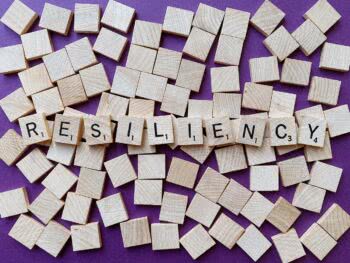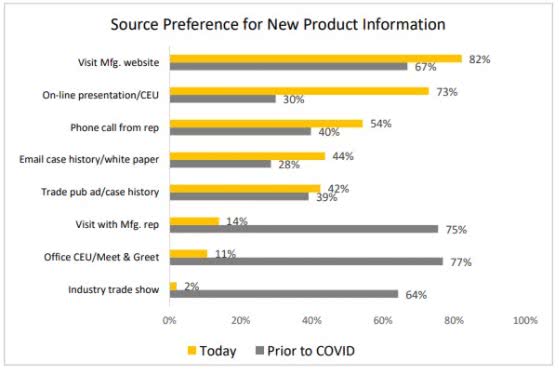
Achieving “Operational Resilience” in the Kitchen and Bath Industry
As the kitchen and bath industry begins to move past the disruption to business and operations caused by COVID-19, one thing is clear: manufacturers, suppliers, architects, and designers are more reliant and connected to technology than ever before. With in-person activities such as visiting showrooms becoming more virtual, professionals need secure and resilient platforms to meet the needs of their customers.
The trend of increasing digital connectedness is not unique to the kitchen and bath industry – every industry is starting to see the shift. The challenges and opportunities revealed by platform and cloud technology were discussed in detail by Edna Conway, VP and Chief Security & Risk Officer for Azure at Microsoft. Conway’s presentation, “Operational Resilience in a Hyperconnected World,” explored the ongoing transition to a “platform economy” and the strategies that businesses in all industries can use to achieve both security and resilience in their day-to-day operations.
Security and Resilience
The basis of Conway’s presentation was the growing shift to a “platform economy,” an economy that relies on cloud technology, social media, and many interconnected devices. With so many business functions dependent on the internet, when there is a security breach or cyberattack, companies can potentially lose days or weeks of work and millions of dollars in profit, as current events are making clear.
The security side of operational resilience is fairly straightforward. Conway explained that as business relies more and more on digital interconnectedness, companies must build flexible systems that prioritize network and cybersecurity, protect sensitive information, and respect the privacy of consumers. Having robust security features will help protect businesses from disruptions in the event of a security breach.
Resiliency is a broader concept that is more difficult to define, but is just as important as security. Resiliency involves building strong systems and processes, both digital and non-digital, to ensure that when there are unexpected setbacks or major disruptions, such as COVID-19, that the impact on the business and its customers is minimal. Establishing resilient operations that stand the test of time can include everything from developing sustainable products and supply chains to closely monitoring export and trade controls. Resiliency means being prepared for the unforeseen.
Not every company has the resources to invest large amounts of money in their own platforms, but Conway emphasized that third-party providers can often fulfill this role. Collaboration with third-party platforms and service providers is essential for building secure and resilient systems.
What Does this Mean for Kitchen and Bath?
The graphic below, pulled from Accountability Information Management (AIM)’s “Snapshots” research on how architects, engineers, designers and facility managers obtain information pre-and post-COVID-19 paints a clear and perhaps not surprising picture of the growing importance of virtual technology and interconnected systems.

While the economy is beginning to reopen and restrictions are being lifted, the greater emphasis on digital learning, communication and product presentations is likely here to stay. In Interline Creative Group’s Navigating Sales and Marketing During COVID-19 Series, their post on Sales and Marketing Insights offers a glimpse into how one company, DreamMaker Bath & Kitchen in Ann Arbor, Michigan, managed to stay in touch with their customers and keep their company intact despite showrooms being closed during the pandemic.
Since the company had already transferred most of their data to the Cloud before the stay-at-home order, employees were able to transition to working at home much more easily. In addition, DreamMaker Bath & Kitchen made an effort to connect with customers and conduct virtual appointments through Zoom, FaceTime, and GoToMeetings despite not being able to offer consultations or complete projects in person.
Not every company has the resources to afford world-class cybersecurity services. It is not the main takeaway of Conway’s webinar on Operational Resilience. Instead, the webinar emphasized the importance of having strategies in place to stay connected and productive in the event of the unexpected. After the events of last year, preparedness is being recognized as more important than ever.